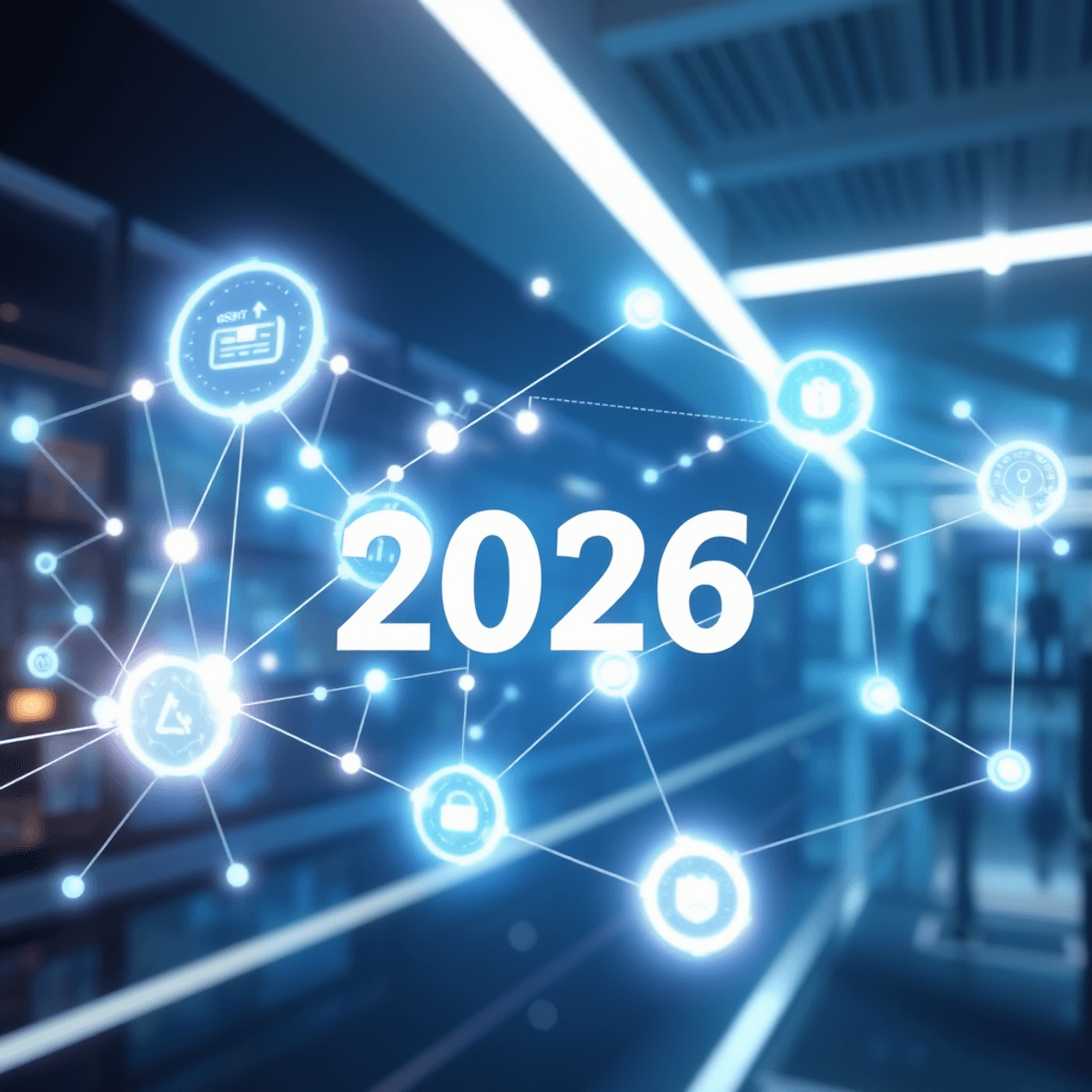
SEO & AEO for MSPs: Turn Searches Into Sales Calls
Imagine this: a business owner types “best cybersecurity IT near me” into Google at 2 AM after getting hit with a ransomware scare. Where does your company show up? If you’re not on page one, you might as well be out of business.
SEO (Search Engine Optimization) is your ticket to being found when prospects are actively searching for IT solutions. It’s the art and science of making your website attractive to search engines like Google, helping you rank higher for keywords that matter to your business.
But here’s where things get interesting. Enter AEO (Answer Engine Optimization), the new kid on the block that’s changing the game. While SEO focuses on getting you ranked in search results, AEO is all about getting your content selected as the answer by AI platforms like ChatGPT, Microsoft Copilot, and voice assistants. Think of it as optimizing for the robots that are increasingly answering questions before humans even click a link.
For MSPs competing in today’s crowded IT landscape, mastering both SEO & AEO for IT companies isn’t optional anymore. It’s the difference between prospects finding you or calling your competitor. When you nail both strategies, you’re not just getting traffic. You’re turning those midnight Google searches into qualified lead generation MSP opportunities that actually pick up the phone and want to talk business.
Understanding SEO for MSPs
SEO for IT companies isn’t just about stuffing keywords into blog posts and hoping Google notices. Think of it as building a digital reputation that actually reflects the expertise your MSP brings to the table. When a business owner types “managed IT services near me” or “cybersecurity solutions for healthcare” into their search bar, you want your company showing up like that reliable friend who always has the answer.
The core principles of SEO strategies MSP companies need to master boil down to four pillars that search engines obsess over:
- Relevance: Your content needs to match what potential clients are actually searching for, not what you think sounds impressive
- Credibility: Backlinks from reputable IT industry sites, client testimonials, and consistent expertise signals tell Google you’re the real deal. This is where backlink strategies come into play, helping to establish your website’s authority.
- User Experience: Fast loading pages, mobile friendly design, and easy navigation keep visitors from bouncing faster than a bad RMM alert
- Engagement: Content that keeps readers clicking, scrolling, and coming back for more tells search engines your stuff is worth ranking
The beauty of IT company SEO is that your industry practically writes its own content playbook. Problem and solution blogs hit different when you’re addressing real pain points like “Why does my network slow down every Monday morning?” or “How to prevent ransomware without breaking the bank.” These pieces do double duty by showcasing your expertise while naturally incorporating the search terms your prospects are using.
Cybersecurity reports and whitepapers carry serious weight in the IT SEO game. When you publish an in depth analysis of emerging threats or a comprehensive guide to compliance requirements, you’re not just creating content. You’re building authority that both search engines and potential clients recognize. These longer form pieces attract quality backlinks from industry publications and become evergreen resources that drive organic traffic MSP companies desperately need.
Here’s the thing about effective SEO: it’s a trust building machine. When prospects find your detailed guide to Microsoft 365 security configurations or your breakdown of CMMC compliance, they’re not just reading words on a screen. They’re experiencing your expertise firsthand, which makes that initial sales call feel less like talking to a stranger and more like continuing a conversation with someone who already gets their challenges.
To truly harness the power of SEO in the IT sector, consider implementing cybersecurity SEO strategies which can significantly improve rankings and attract more leads. Additionally, focusing on building blog authority can further enhance your online presence and credibility.
The Rise of AEO and Its Role in IT Marketing
What is AEO?
While SEO has been the bread and butter of digital marketing for decades, Answer Engine Optimization (AEO) is quickly becoming the secret sauce that separates thriving MSPs from those still wondering why their website traffic isn’t converting. Think of AEO for IT as SEO’s smarter, more direct cousin who actually answers the question instead of making you dig through five paragraphs to find what you need.
How AEO Works
Answer engine optimization IT focuses on providing immediate, accurate responses to specific queries. Unlike traditional SEO, which casts a wide net to capture users researching broad topics like “best cybersecurity practices,” MSP AEO zeroes in on direct questions such as “what’s the cost of ransomware recovery for a 50 person company?” This distinction matters because your potential clients aren’t always in research mode. Sometimes they just need a straight answer, and whoever provides it first wins the conversation.
The Impact of AI on Search Queries
The shift toward AI-powered search MSP strategies stems from massive advancements in artificial intelligence and natural language processing. Platforms like ChatGPT, Microsoft Copilot, and voice assistants including Siri and Alexa have fundamentally changed how people seek information. Your prospects might ask their phone, “Which IT company near me handles healthcare compliance?” or type into ChatGPT, “Should I migrate to Azure or AWS for my manufacturing business?”
These AI tools don’t just crawl websites like traditional search engines. They synthesize information, understand context, and deliver conversational responses. If your content isn’t structured to feed these answer engines, you’re invisible to a growing segment of decision makers who prefer asking questions over scrolling through search results.
The Importance of Featured Snippets
The real game changer? Zero click searches and featured snippets. These are the answer boxes that appear at the top of Google results, the responses Siri reads aloud, and the information ChatGPT pulls when someone asks an IT question. Getting your content featured here means prospects get their answer without ever clicking through to another site. Sounds counterintuitive, right? But when you become the trusted source providing those answers, people remember your brand when they’re ready to buy.
Structuring your content with clear, concise answers to specific questions positions your MSP as the go to authority, whether someone finds you through Google, asks Copilot for recommendations, or voice searches while driving to their office.
Key Differences Between SEO and AEO for MSPs
The distinction between SEO vs AEO MSP strategies becomes clear when you examine how each approach targets your potential clients.
Traditional SEO
Traditional SEO focuses on keywords like “managed IT services Chicago” or “cybersecurity solutions for small business.” These phrases work great when someone’s doing research and comparing options.
AEO
AEO flips the script entirely by targeting conversational keywords IT prospects actually speak out loud: “What’s the best way to prevent ransomware attacks?” or “How much should I budget for IT support?”
Think about how your prospects search when they’re at their desk versus when they’re asking Siri while driving to a client meeting. That’s the heart of this difference.
Key Differences:
- Focus: SEO focuses on specific service terms and locations, while AEO addresses complete questions and scenarios.
- Target Audience: SEO targets prospects in active research mode, whereas AEO captures voice search and AI assistant queries.
- Query Length: SEO is optimized for typed queries with 2-7 words, while AEO uses longer phrases matching actual speech patterns.
- Ranking Strategy: SEO competes for rankings on results pages, while AEO aims for featured snippets and direct answers.
The Role of Structured Data in Bridging the Gap
Structured data IT marketing acts as the universal translator between these two worlds. When you mark up your FAQ pages with proper schema, you’re essentially giving both Google and ChatGPT a cheat sheet to understand your content.
A well structured FAQ about “How to choose an MSP” becomes discoverable through traditional search results and gets pulled into AI-generated responses.
Combining SEO & AEO Strategies for Maximum Impact
The real magic happens when you stop treating SEO & AEO for IT companies as separate initiatives.
Your comprehensive guide to Microsoft 365 migration serves the SEO crowd doing deep research. That same article, when broken down with clear H2 headers answering specific questions and marked up with FAQ schema, feeds the AEO machine.
You’re not creating double the content. You’re making your existing content work twice as hard by structuring it to satisfy both the researcher clicking through ten tabs and the decision maker asking their phone a quick question between meetings.
Implementing an Integrated SEO & AEO Strategy for MSPs
Furthermore when you stop treating integrated digital marketing MSP approaches as separate tactics and start weaving them together like a well configured software stack. Think of it as your deep dive content is the comprehensive knowledge base article, while your AEO optimized snippets are the quick reference guide. Both serve different user intents, but they work together to capture prospects at every stage of their research journey.
Building Content That Serves Two Masters
Your content strategy IT services needs to satisfy both the person reading a 2,000-word blog post on their desktop and the AI parsing your content for a voice query answer. Start each piece with a clear, direct answer to the main question within the first 150 words. This satisfies AI platforms looking for quick responses. Then expand into the detailed analysis, case studies, and technical depth that human readers (and Google’s ranking algorithms) appreciate.
For example, a blog post titled “What Is the Best Backup Solution for Healthcare Practices?” should immediately state your recommended approach, then dive into compliance requirements, encryption standards, and recovery time objectives. The AI gets its snippet, the reader gets their comprehensive guide.
Voice Search Optimization MSP Tactics That Actually Work
Voice search optimization MSP strategies require thinking like your prospects talk, not how they type. Nobody asks Siri “best MSP Chicago.” They ask “Who can help me fix my company’s email security problems?” or “What does ransomware protection cost for a 50-person office?”
Structure your content around these natural language patterns:
- Create dedicated pages answering specific “how much does” questions about your services
- Use conversational headings like “Can my business recover from a cyberattack?” instead of “Disaster Recovery Services”
- Include local references and industry specific scenarios that match how prospects describe their problems
Establishing Niche Authority Through Precision Language
Generic IT jargon won’t cut it. When you consistently reference Microsoft 365 migration challenges, Fortinet firewall configurations, or CMMC compliance requirements, you signal expertise to both search engines and AI platforms. These specific terms act as trust markers that separate actual MSPs from content farms trying to rank for “IT services.”
Drop the vendor names, certification acronyms, and industry frameworks naturally throughout your content. This specificity helps AI platforms understand your true expertise area and increases the likelihood of being cited as a source when someone asks about those particular solutions.
Case Studies & Success Stories from Managed Prospecting System (MPS) Clients
When people ask what it is like to run Managed Prospecting System, we point them to the stuff that actually happened, in the wild. Omery Farajin left a voicemail that basically says, “You’re killing me with all these leads,” which is the kind of problem you want to have.
Then you’ve got video case studies like Lidia who “Doubled My Goal” and Lauren Groff “$9K MRR In Two Months,” plus testimonials that hit the emotional side of it, like Sean Kline “I Waited Too Long” and Clint Gatewood “You won’t have to make cold calls.”
See more in document linked here: MPS Sample Results, What our cl…
“You’re killing me with all these leads!” – Omery Farajin, Storage Guardian
The pattern repeats across dozens of MPS clients: consistent content creation paired with strategic LinkedIn outreach and targeted email campaigns creates a compounding effect. Prospects discover the content through search, engage with it on LinkedIn, and respond positively to emails because trust has already been established.
Practical Tips to Boost Your MSP’s Online Visibility Today
Ready to put these SEO & AEO strategies into action? Here’s your playbook for practical SEO tips MSP owners can implement starting today to drive real lead pipeline growth MSP style.
1. Audit Your Digital Foundation
Your website needs a health check. Run through your existing content and ask yourself: does this actually answer the questions my prospects are typing into Google at 2am when their server goes down? Look for opportunities to add structured data markup to your service pages, case studies, and blog posts. Schema markup might sound technical, but it’s basically giving search engines and AI tools a cheat sheet to understand your content better.
2. Build Your FAQ Arsenal
Create dedicated FAQ pages that mirror how real humans talk. Instead of “What are managed IT services?” try “How much does IT support cost for a 50 person office?” This conversational approach captures both traditional searches and voice queries. Your prospects are asking these questions somewhere, might as well be on your site where you control the narrative.
3. Commit to Consistent Content
Pick two topics your ideal clients lose sleep over (ransomware attacks and Microsoft 365 migrations are solid bets) and publish fresh content monthly. Quick wins AEO IT companies see often come from timely posts about emerging threats or compliance changes. You’re not writing a novel here, just demonstrating you know your stuff and stay current.
4. Align Your LinkedIn Presence
Your LinkedIn profile should echo the expertise your website content establishes. Share snippets from your blog posts, engage with industry discussions, and make sure your headline speaks to the problems you solve, not just your job title.
5. Nurture Through Strategic Email
Build email sequences that reference your optimized content. When prospects download your cybersecurity checklist, follow up with related blog posts that answer their next logical questions. This integrated approach for SEO & AEO for IT companies turns casual website visitors into qualified conversations.
Get Your Free Authority Audit Today!
You’ve got the practical tips. Now let’s talk about what’s actually happening with your current digital presence.
We’re offering a complimentary authority audit specifically designed for IT companies and MSPs who want to stop guessing and start growing. Schedule yours here and we’ll dig into what’s working, what’s broken, and what’s costing you qualified leads.
Here’s what you’ll discover during your audit:
- SEO & AEO gaps that are keeping your ideal clients from finding you
- Content opportunities your competitors are missing
- Specific fixes to improve lead generation for IT companies
- LinkedIn profile optimizations that turn connections into conversations
- Email strategy tweaks that actually get responses
The best part? You’re not getting generic marketing advice from someone who thinks “MSP” stands for “Minnesota State Patrol.” Our team includes former MSP owners who’ve been in your shoes. We’ve dealt with the same long sales cycles, the same skeptical prospects, and the same frustration of marketing that burns cash without delivering results.
This free authority audit for MSP marketing isn’t a sales pitch disguised as a consultation. It’s a genuine look at where your digital strategy stands and a roadmap for turning more searches into actual sales calls.
Ready to see what you’re missing? Grab your spot on the calendar.
FAQs (Frequently Asked Questions)
What is the difference between SEO and AEO for MSPs in the IT industry?
SEO (Search Engine Optimization) focuses on improving organic search rankings through relevance, credibility, and user engagement using traditional keyword strategies. AEO (Answer Engine Optimization), driven by AI and natural language processing, targets conversational queries by providing concise answers optimized for voice search and featured snippets. Together, they maximize online visibility and lead conversion for MSPs.
Why should MSPs integrate both SEO and AEO strategies in their digital marketing?
Integrating SEO and AEO allows MSPs to cover broad informational needs with in-depth content while also delivering quick, precise answers for AI-powered search platforms. This dual approach enhances relevance across search engines and voice assistants, increases organic traffic, builds trust, and converts searches into qualified sales calls in today’s competitive IT landscape.
What types of content are most effective for SEO targeted at Managed Service Providers?
Effective SEO content for MSPs includes problem/solution blogs, cybersecurity reports, whitepapers, and regularly updated posts addressing trending IT infrastructure topics. Such content builds authority, improves user engagement, and drives organic traffic essential for lead generation in the IT services sector.
How can MSPs optimize their content for voice search and AI-powered platforms?
MSPs can optimize for voice search by incorporating natural language questions relevant to IT services and cybersecurity into their content. Using structured data markup like FAQs and how-to guides enhances visibility on AI tools such as ChatGPT, Microsoft Copilot, and voice assistants like Siri, improving chances of featured snippets and zero-click searches.
What practical steps can MSPs take immediately to boost their online visibility using SEO & AEO?
MSPs should start with a website audit focusing on content relevance and implementing structured data. Creating FAQ pages with conversational language, publishing regular blog posts on cybersecurity trends, optimizing LinkedIn profiles aligned with their content strategy, and leveraging targeted email campaigns are effective quick wins to enhance online presence and lead pipeline growth.
How does the Managed Prospecting System (MPS) help MSPs generate leads without paid advertising?
MPS combines integrated content marketing with LinkedIn outreach and email systems that leverage SEO & AEO principles. This approach builds niche authority and trustworthiness organically, resulting in increased qualified sales calls without cold calling or paid ads. Proven case studies demonstrate significant improvements in lead generation through optimized online presence.


